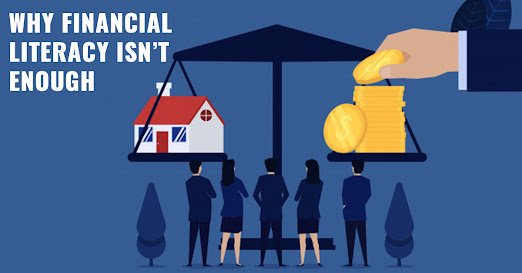Why Financial Literacy Isn’t Enough

At its core, financial literacy is all about understanding money. People who’re financially literate understand how to make use of money and to save money for their own economic gain. Though this may look to be a straightforward concept, financial literacy falls short in endorsing the kind of healthy spending habits people need . Here, we have explained why financial literacy is not enough Financial literacy does not encourage: The major issue with financial literacy is that it falls short to consider one’s financial or personal circumstance. Due to this, it can’t encourage people to make smarter spending choices. Learning to encourage individuals to make healthier financial decisions will need a dynamic approach. This approach should look to increase financial knowledge while giving access to equal resources for all individuals. Just as importantly, however, it should ensure that those experiencing pove...




